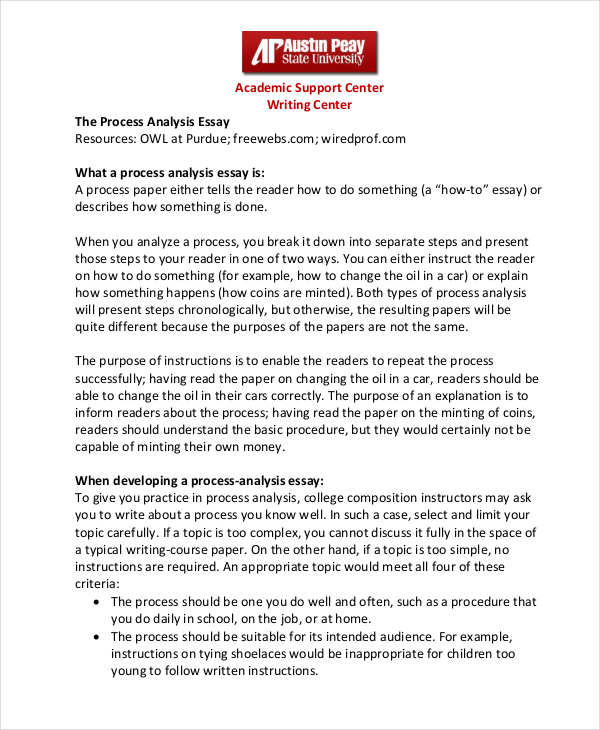
For your writing to be analytical, you will need to support your argument by referring to the key parts of your topic. You may also want to consider persuasive techniques. Exactly what you need to 8/20/ · GRE analytical writing assesses your ability to think critically and transfer your ideas into well-developed, well-reasoned, and well-supported writing. The GRE tests two sections of a student’s analytical writing skills: analyzing an issue and analyzing an argument. This article covers the analyzing an issue task so you can write like a non-boring academic and maximize your GRE score! All analytical papers include a thesis, analysis of the topic, and evidence to support that analysis. When developing an analytical essay outline and writing your essay, follow these five steps: #1: Choose a topic. #2: Write your thesis. #3: Decide on your main points. #4: Gather evidence to support your analysis
Analysing a topic - Writing to analyse - KS3 English Revision - BBC Bitesize
We use cookies to personalize and improve your browsing experience. To learn more about how we store and use this data, visit our privacy policy here. GRE analytical writing assesses your ability to think critically and transfer your ideas into well-developed, well-reasoned, and well-supported writing.
This article covers the analyzing an issue task so you can write like a non-boring academic and maximize your GRE score! Here are their top 7 tips to succeed on test day. The Issue Task assesses how well you can develop and support your own position on an issue. To respond to the Issue Take, you need to take a position either agreeing or disagreeing with an issue and defend your position with evidence.
A thesis statement that makes your view on the issue absolutely unmistakable should appear somewhere in the first paragraph. You can, in fact score a 6, the highest score, if you state your point of view in the first sentence. Make sure that the thesis is clear and that all how to do analytical writing evidence and support you write after it goes together. Organizing your writing will help the reader understand your writing and help you write quicker and with more clarity.
You can get a better idea of how to organize from tips three and four. There are a couple ways to do this:. Try a traditional structure for developing the paragraphs within the body of your response. The topic sentence tells the reader what the paragraph how to do analytical writing about. Your topic sentence might suggest that by having to pay, people will place greater value on their visit i. support for your position. Here are three options:. Your job here is to make your topic sentence convincing by developing it with supporting points.
Going back to the paid-entry to national museums in Washington example: you might talk about how families visiting for a long weekend from faraway might not come if they had to pay for two adults and several children at three museums, how to do analytical writing.
Considering different perspectives will only help strengthen the support and development of your writing. Try to make this part of your paragraph full and dense with detail by using the above suggestions. In general, what you need is to be able to transition to your next point at the end of each body paragraph.
Still though, it helps if you can give a fresh and more enlightened perspective i. in light of the support and reasoning given in the paragraph. A huge factor in the success or relative failure of your essay will be the kinds and amount of support you provide. Here are 5 things you can add to create well-rounded and substantive paragraphs:.
Facts are a perfect way to add support and credibility to your argument. Emotional appeals, how to do analytical writing powerful, how to do analytical writing, should be used sparingly. Your writing should not solely depend on this kind of information.
We all have unique and valuable perspectives, how to do analytical writing. Sharing your personal observations is a simple way to add more to your writing while lending more support to your argument. If you have a lot of life experience, this becomes even more helpful.
Your observations can be an appeal to either reason or emotion. Telling a short story can memorably drive home your position while possibly adding some evidence to your claim.
Remember to limit your piece to a maximum of one anecdoteotherwise you might end up detracting from your overall work. This method can work as either an appeal to reason or emotion. Examples help illustrate ideas in meaningful ways. Feel free to use them many times throughout your writing as they add substantive support to your claims.
This method is most effective as an appeal to reason. In order to make yourself more persuasive, the goal is to come across as reasonable and professional. There are times that using the first-person perspective I, me, my… is a better choice.
The goal is to have a substantive and well-supported piece of writing. Try adding the following elements as time permits:. This is by no means necessary, how to do analytical writing, but if you can include an intriguing question or surprising fact to begin your essay; it can be a terrific add-on.
You get 30 minutes to read the prompt and write your response. Common sense may say to start writing ASAP after reading the prompt because you have so little time. Avoid this urge as it will be your downfall, how to do analytical writing. Consider taking minutes to do prewriting instead.
Prewriting lets you work much more efficiently and effectively. It gives you a chance to think through the prompt and make a plan.
There are three main parts to prewriting to get you on track and keep you there:. The best way to make use of all the advice in this article is to practice, practice, practice. Find some practice GRE writing prompts and try applying what you just learned. Expect to need more time than this to implement these ideas the first few pieces you write. We hope you found this article useful. grad school GRE Writing tips. Access Study Guides for Our 5 Most Popular AP Exams Part 5: AP Computer Science April 9, Submit Type above and press Enter to search.
Press Esc to cancel.
GRE Prep: Analytical Writing - Analyze an Issue vs Analyze an Argument
, time: 12:135 Steps to Write a Great Analytical Essay

8/20/ · GRE analytical writing assesses your ability to think critically and transfer your ideas into well-developed, well-reasoned, and well-supported writing. The GRE tests two sections of a student’s analytical writing skills: analyzing an issue and analyzing an argument. This article covers the analyzing an issue task so you can write like a non-boring academic and maximize your GRE score! 12/6/ · To learn how to write an analytical essay, one should organize the structure of the paper—as it makes the entire writing process easier. Experts recommend having up to five paragraphs on your paper blogger.comless, the Intro-Body (s)-Conclusion formula is a staple in any analytical essay outlne All analytical papers include a thesis, analysis of the topic, and evidence to support that analysis. When developing an analytical essay outline and writing your essay, follow these five steps: #1: Choose a topic. #2: Write your thesis. #3: Decide on your main points. #4: Gather evidence to support your analysis

No comments:
Post a Comment